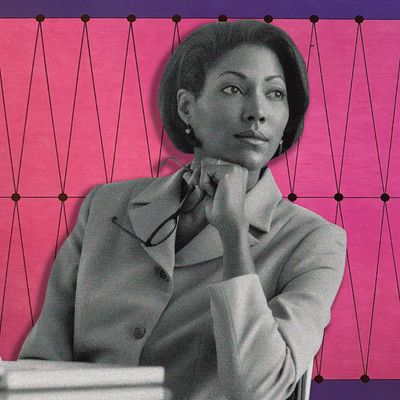
Dear Kimberly,
I have been an attorney for 15 years. For the last 11 years, I have worked as a criminal prosecutor for the state. My current title is a division chief, which is a leadership role. Leadership positions here are somewhat based on the quality of work you do, but more so on the number of years you have worked here. There is no training, and turnover is extremely high. We have a staff of 50 attorneys; 20 resigned in 2021. I discuss performance with the team I lead; however, there is no formal evaluation process. I rarely get feedback on my performance as a leader or as an attorney. My supervisor wouldn’t know how I am doing as she rarely, if ever, observes or assesses what I am doing. After listening to you and reading Next Move, Best Move, I realize it is on me to get professional and career development for myself and not rely on my employer to do so. So here I am.
I feel like I’ve hindered myself by staying at this employer and doing the same type of law for so long. I want to transition to a position as general or in-house counsel for a corporation or business. I am also considering compliance and human-resource positions as well. But I am finding it hard to be considered for these positions, as I have no experience in either. I paid to have my résumé updated and have applied for several jobs.
What can I do to increase my visibility in the areas that I want to transition?
(And a caveat: Since I began applying for jobs, I found out I might have to stay in government work for a little longer after all. I am under review to have my student loans forgiven under the expanded Public Service Loan Forgiveness Program … but it may take months.)
Thank you,
T
Dear T,
Before I even jump into answering your question, I totally understand if you want to stay to get your loans forgiven! Do what you need to do, T! Those hefty payments are not to be played with.
Student loans aside, let’s start with your application process. When I’m speaking with my clients who are on the job hunt, there are a few key phases to consider: application, phone screen, interview, final-round interviews, and offer. Exactly where in the process you are getting stuck can indicate what some of your problems may be. Because we are speaking about “visibility” as you say, I want to focus on the application and phone screening.
During the application phase, it’s important to make sure you’re applying to a good number of roles. Many times, I’ll work with clients who say they aren’t getting any traction with their applications, but it turns out they’ve only sent in three of them. You need more volume in order to be able to assess trends and understand where things may be falling short. It’s important for your résumé to be seen! It’s always shocking to me when I hear that professionals simply aren’t applying to enough roles for their résumé to land on lots of recruiters’ and hiring managers’ desks. For you, I’d love to hear back after you’ve applied to a good number of in-house counsel and compliance roles.
If you have been applying to a good number of roles but not receiving phone screens, then we need to concentrate on your résumé, cover letter, and relationships. Since you’ve had your résumé professionally done, I’m not too worried about it, but it may be worthwhile to consider including a cover letter in your applications to better explain your transition from your current role to whatever you are most interested in. Remember, it’s your job to explain this transition so the recruiter or hiring manager can see that you’re a great fit for the role. You can’t rely on the company to see that you’re a great fit if you don’t prove it to them first.
When you think about your experience and day-to-day tasks, how does this directly correlate to the job that you’re applying for? One of my favorite lines to include in a cover letter is:
Based upon my experience doing ABC, I would be able to perform XYZ if hired for this position.
Now, you may be rolling your eyes saying, “Kimberly, NOBODY is reading a cover letter these days!” But, you never know! So why not include one to plead your case? I’ve seen many recruiters use cover letters to look deeper into candidates that they are interested in, but just not sure about yet.
In this phase, it’s also crucial that you work on cultivating sponsorship in order to increase your visibility. I like to tell my clients, “One of the few things that can expedite your success in the workplace is relationships.” Getting the right professional to advocate for you in rooms that you have not been invited into is crucial to increasing your visibility. Do an assessment of your current network and determine who you know that is working in the types of roles or companies that you may be interested in. Reconnect and start to strengthen those relationships so you’re able to reach out when the time is right. This can be through informational interviews, coffee chats, or industry events. It’s never too early to start, because it takes time to build the foundation for a referral that helps you secure an interview. However, keep in mind that It’s never a good idea to “activate” these connections when you aren’t sure if you’d actually take a job if you were referred. That can significantly damage your relationship with that person who stuck their neck out for you.
When someone you’ve only recently met refers you for a job, it’s generally lukewarm. They may say something like, “I recently met T and I feel like she’s worth a conversation.” But when you have a well-developed relationship, the referral is red hot. They may say something like, “T is a professional who I’ve been in contact with for X number of years. I know her experience would be of great value here because of X. I highly recommend that recruitment prioritizes her interview. I’d be happy to serve as a reference.”
We all want the second referral, not the first one.
If you look at your current network and realize that you don’t know anyone who can help increase your visibility external to your current company, I recommend becoming active in professional associations. Organizations like Corporate Counsel Women of Color and SHRM, Society for Human Resource Management, would be great places to start. They both have in-person and virtual events and annual conferences where you can begin to grow your network. If you want to really increase your visibility, I recommend joining the local or regional chapters of these organizations and applying for a leadership role within them. This is one of the secrets I’ve used to build my own career.
As you start to meet more professionals, you can slowly but surely narrow down the circle of people to advocate for you when you’re ready to apply for roles. And remember, to be an effective sponsor, they have to have power and influence. This doesn’t necessarily mean that they are the most senior person in the room. The key is that they have the relationships, respect, and authority to make a red-hot referral that sends your résumé to the top of the pile.
Best wishes on your career transition, T! Regardless of whether you’re ready to make a move tomorrow or in the future, after your student loans are forgiven, start building those relationships now.
Career and leadership-development expert Kimberly Brown helps readers make sure their next move is the best move. Listen to the Your Next Move podcast here and keep up with Kimberly on her website.





